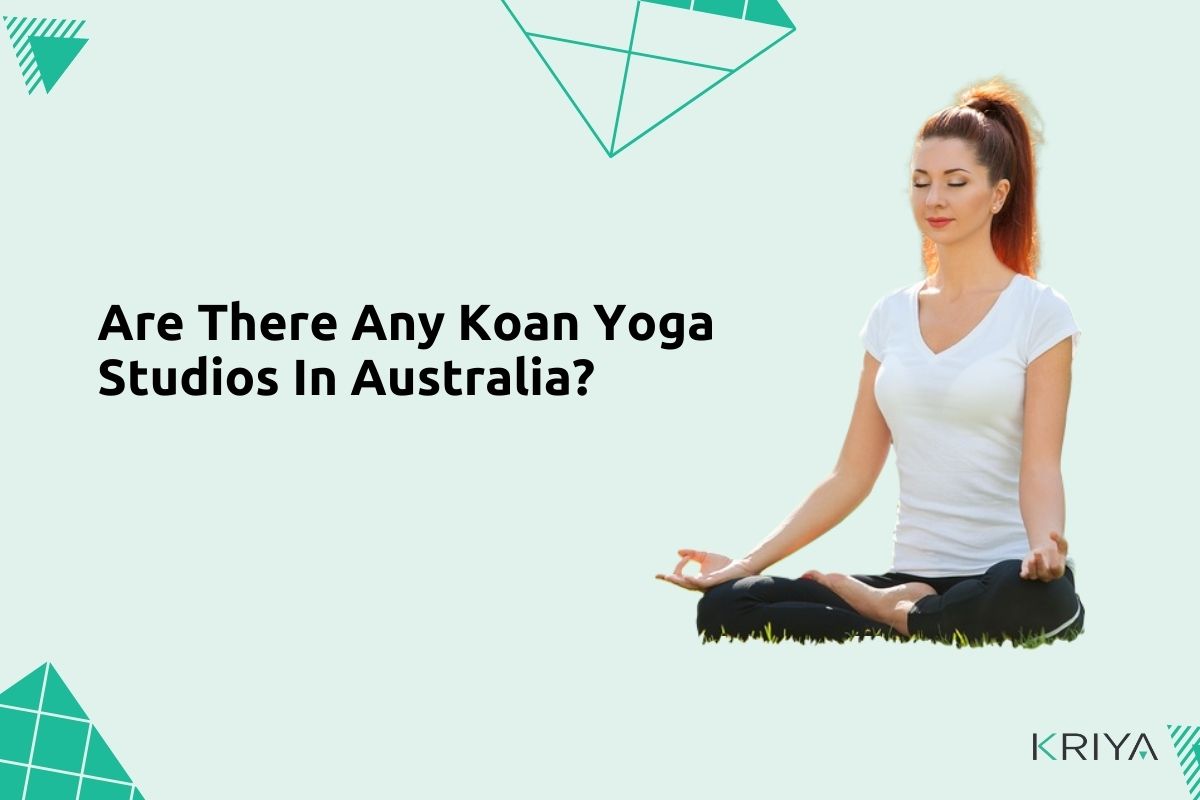
Are There Any Koan Yoga Studios In Australia?
Koan Yoga Studios are those that teach Koan Meditation. The Koan word means a story, dialogue, question, or statement which is used in Zen practice to provoke the “great doubt” and to practice or test a student’s progress in Zen yoga.
According to Edward Cherlin, Soto Zen Buddhist priest, Order of Buddhist Contemplatives, Shasta Abbey:
“A koan is a form of upaya in Buddhism, of skill in means. Any teaching that requires giving up some form of attachment can be called a koan, the more so as people cling desperately to such attachments. Thus kamma/karma (cause and effect) causes great denial, as does anatta/anatman (no-self, or better unselfishness), or compassion for all sentient beings, or the Precepts.
The original Buddhist koan is suffering, particularly the issues of birth, old age, disease, and death, which are to be resolved by non-attachment, achieved through every component of the Noble Eightfold Path.
There is a vast amount of instruction in the Pali Tipitaka on the subject of mindfulness and of insight meditation, and on a wide range of other meditation practices, including treating every known form of attachment, of desire, aversion, and delusion, as a particular koan. The state of breaking through attachment is then called nibbana, among a variety of other names.
The jhanas, for example, gave us the dhyanas, whence chan in China and zen in Japan. There are also samadhis, of which the highest is Annuttara Samyak Sambodhi, unexcelled supreme awakening. Each of them represents a koan”.
Zen Yoga and Koan

Zen Buddhist practice makes use of various kinds of training in bringing students to the experience of realisation and maturing that experience: zazen, daily life and the study of koans. The koan is a torch of wisdom that lights up the darkness of feeling and discrimination, a golden scraper that cuts away the film clouding the eye, a sharp axe that severs the root of birth-and-death, a divine mirror that reflects the original face of both the sacred and the secular.”
Koan meditation brings awareness to this process and invites you to explore further. Koan meditation slowly teaches you how to choose, question, and transform your perception of the world.
Are there any Koan Yoga Studios in Australia?
Yes there are few popular Koan Yoga studios in Australia that teach Koan yoga meditation.
1. Mirosuna Studio in Melbourne
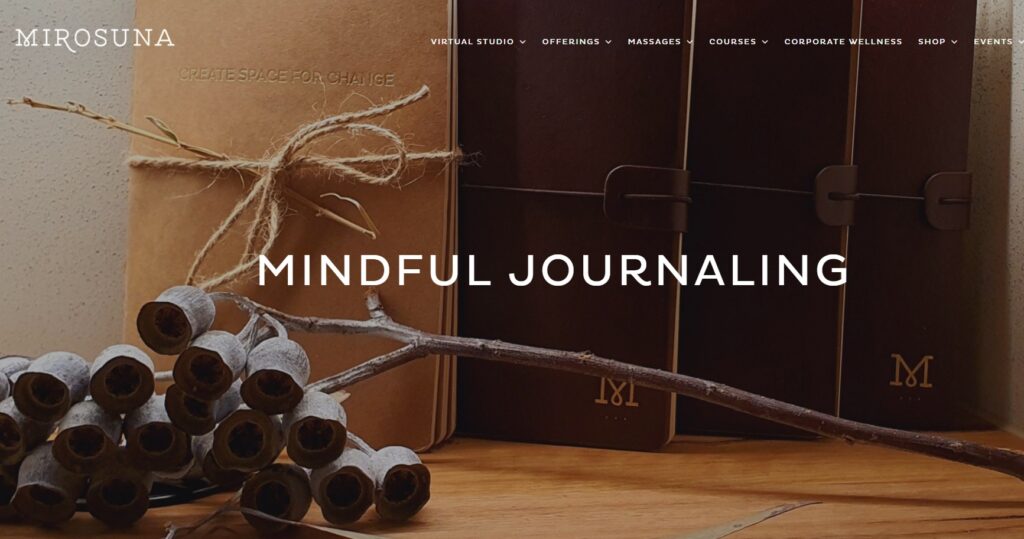
Location: 18A Ross St, South Melbourne VIC 3205, Australia
Phone: +61 492 926 385
Mirosuna Studio offers many courses on Koan meditation. Sally Kellett is a professional meditation teacher, certified sound meditation practitioner and founder of Mirosuna.
They combine the most effective ways to experience deep relaxation, Mirosuna offers sound meditation, mindfulness classes, courses and therapeutic massage to optimise your physical, mental and emotional wellbeing.
Each of their mindfulness classes and therapeutic massage services have been crafted to help you enter a deep, trance-like state of mindfulness. So whether you join a sound meditation, book in for an hour-long stone massage, or combine multiple services, you’ll be sure to leave Mirosuna feeling reconnected and truly recharged.
You can download their iPhone app to book classes or download app for android.
2. Sydney Zen Center

Location: 251 Young St, Annandale NSW 2038, Australia
Sydney Zen Centre is Australia’s original Zen Buddhist community. They are a lay community affiliated with the Diamond Sangha, which was founded by Robert Aitken Roshi. They also offer Zoom meditation sessions every Monday and Thursday night.
The Sydney Zen Centre also has a group that practices in the Blue Mountains. Sydney Zen Centre has three teachers, Subhana Barzaghi, Gillian Coote and Paul Maloney, who regularly help members with their practice, conduct ceremonies and lead sesshins.
Click here to find their class schedule
3. The Zen Room

Location: Restless Dance Theatre, 195 Gilles St, Adelaide SA 5000, Australia
Phone: +61 487 487 111
Emma Wallace is the founder of The Zen Room mindfulness meditation Studio, the first of its kind in Australia.
The Zen Room offers quick, easy, effective and enjoyable 20-minute Deep Relaxation mindfulness meditation classes for people with busy minds and busy lives and who have typically found other forms of mindfulness meditation difficult to engage with due to difficulties quieting their mind.
The Zen Room differs from other mindfulness meditation classes in three ways:
- Blending traditional techniques to create meditations that are accessible and relevant for everyone.
- Gentle breathing techniques to calm and relax the core column of your nervous system.
- Sound therapy: Used in conjunction with our meditations. Neurological studies, have proven sound therapy relieves stress, anxiety and improves moods.
They also offer online course for those who want to practice and learn from home.
4. Life Flow Meditation Center
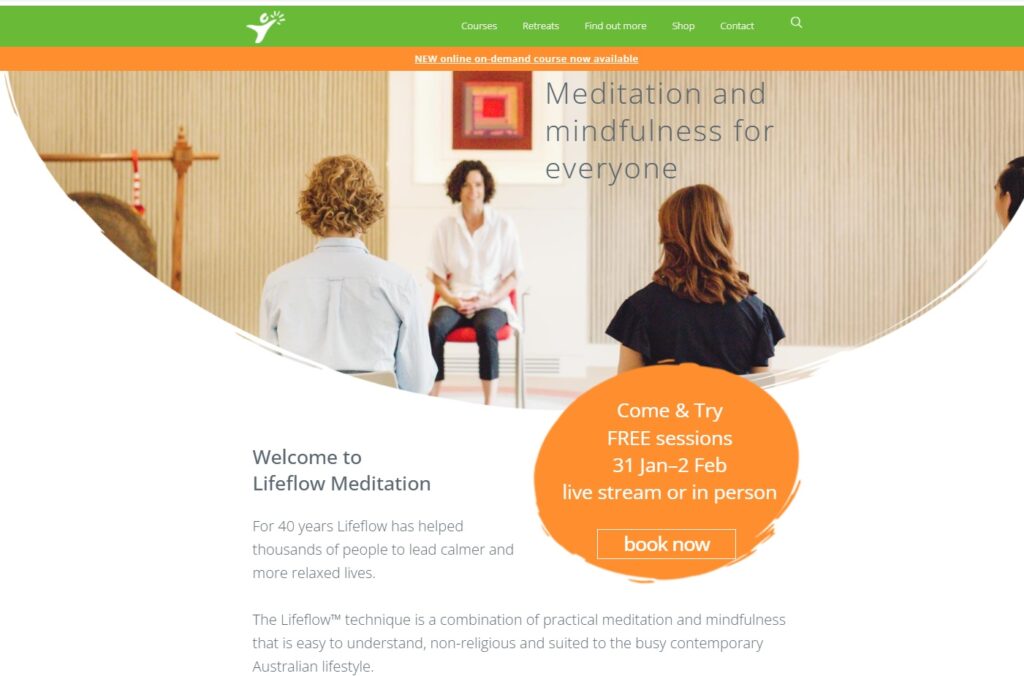
Location: 8/259 Glen Osmond Rd, Frewville SA 5063, Australia
Phone: +61 8 8379 9001
Lifeflow is a wholly Australian, non-profit, educational organisation dedicated to alleviating mental and emotional conflict by providing meditation-based tools that integrate mind and body. Their Meditation Academy allows you to access a wealth of resources and comprehensive meditation courses from the comfort of your own home by enrolling online.
There are many free lessons as well as paid lessons to join.
Besides these popular Koan Mediation studios there are many others in Victoria, Melbourne, Adelaide, NSW and other states of Australia. Note that most of the Buddhist temples also offer such kind of meditation and if you are interested you can enquire from the priest over there.
What are the steps for Koan Meditation?
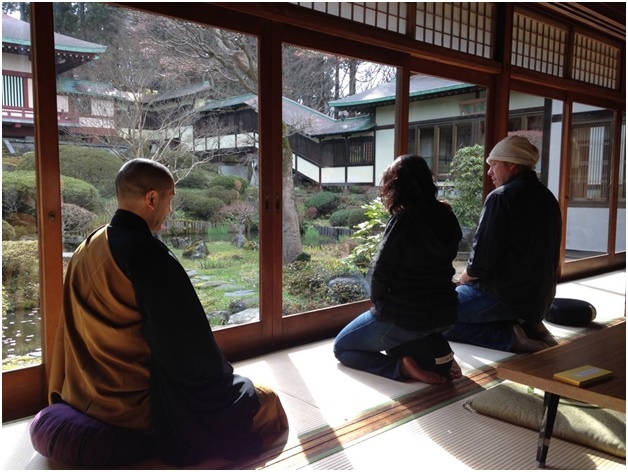
Following are the steps for Koan Meditation as described by Dr. Kaiya Ansorge. Kaiya is academically trained in psychology, philosophical theology, and religion. She teaches at the University of South Dakota.
- Choose how you would like to practice. Would you like to do a seated, lying down, or walking meditation? You may even choose a non-traditionally Buddhist practice such as swimming or writing meditation. Many Buddhists use koans as a continual contemplation throughout their regular daily activities.
- Choose a koan. You may use a traditional koan such as “What is the sound of one hand clapping?” Or you may want to try koans you discover via a source like choose prayers from your religious background or, even better, from another religion in order to expand your consciousness and challenge it in a way that mystify you and open you to new vistas. Or you may choose a poem or a phrase that you want to move from your mind to your entire being. Affirmations and prayers are potent with this practice.
- Gently rest your mind on your chosen koan as you meditate.
- When you notice your mind drifting from the koan, you may follow the thoughts but with awareness, or you may return your thoughts gently to the koan.
- As you watch your thoughts around the koan, allow yourself to notice those thoughts while cultivating interest and releasing judgment. Rhythmic, gentle breathing helps us transition our judgmental or anxious thoughts into a pattern of calming embrace and release.
- As you close your session, offer gratitude or love to the koan, to your mind, and finally to your body for this session.
Find best Yoga and Meditation Retreats in NSW
Why Koan Meditation?
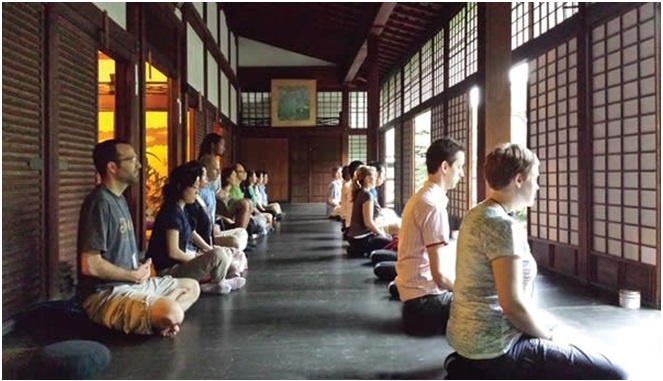
When you meditate on a koan, you’re not only getting the benefits of meditation, but also giving your mind a big mental workout.
According to Steve Bloom Meditating on koans is like thinking on a riddle without an answer. You can think about it all day long and try to unravel the meaning, but never quite figure it out. It’s more than that. When you meditate on a koan, you’re looking into yourself and the world around you in a different way.
You get this “direct pointing to reality” by using a part of your minds which means intuition.
According to Psychology Today, intuition is defined as “a process that gives us the ability to know something directly without analytic reasoning, bridging the gap between the conscious and non-conscious parts of your mind between instinct and reason.”
It further says that you need both instinct and reason to make the best possible decisions for yourselves, your businesses, and your families.
Intuition is connected with your ability to make good decisions. A good intuition also helps your creativity and problem-solving skills.
Therefore Koans are a great way to tap into your intuitive side. If you meditate on koans enough, you’ll build it up just like a muscle. Not only that, but you’ll learn more about the world around you.
To sum up about koan meditation it’s important to understand that what you learn from koans is not knowledge. It’s a way to examine and reflect the world around you and think logically keeping in control of your emotions and have a stable calm mind. Click here to find out how Koan will open your mind.
